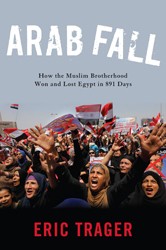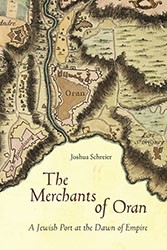By
– August 29, 2011
The threefold division of Sarah Taieb-Carlen’s book The Jews of North Africa reflects three major periods of North African history. The first — the pre-Islamic — is regarded by the author as a triumphant period because Jewish settlement preceded and outlasted that of all the other groups that passed through the region. Similarly, she views the Islamic era that followed as a positive time for the Jews. Even though they were generally treated as second class “dhimmi,” and were repeatedly subjected to discrimination and pogroms from the predominant Moslem population, they were allowed a certain degree of autonomy. They were permitted to maintain their own schools and religious institutions.
Lastly, Taieb-Carlen deals with the French Colonial period, when France spread its influence throughout the Middle East. Initially this was accomplished through military conquest. Later it was achieved more effectively through assimilation and “re-education.” The author believes that it was only during this period that the Jews lost their way. They were taught to view their own traditions as primitive and misguided as they adopted the morés of French society. When Islam reasserted itself in North Africa the Jewish communities had changed to such an extent that they could no longer accommodate themselves within the new Islamic societies. Emigration was the solution.
This is a basic introduction to a subject which the author considers a neglected area of study. Bibliography, glossary, index tables.
Lastly, Taieb-Carlen deals with the French Colonial period, when France spread its influence throughout the Middle East. Initially this was accomplished through military conquest. Later it was achieved more effectively through assimilation and “re-education.” The author believes that it was only during this period that the Jews lost their way. They were taught to view their own traditions as primitive and misguided as they adopted the morés of French society. When Islam reasserted itself in North Africa the Jewish communities had changed to such an extent that they could no longer accommodate themselves within the new Islamic societies. Emigration was the solution.
This is a basic introduction to a subject which the author considers a neglected area of study. Bibliography, glossary, index tables.
Randall Belinfante has served as the Librarian of the American Sephardi Federation for more than 13 years. He has taken a tiny collection of 200 books and built an assemblage of over 10,000 items. Mr. Belinfante holds degrees in various aspects of Jewish studies, and during his tenure at ASF, he has investigated a variety of topics, presenting papers on such diverse topics as the Mizrahi Jews driven from their homes in Islamic countries and the crypto-Jewish Mashhadis of Iran. He has also written many book reviews on books of Sephardi / Mizrahi interest.





